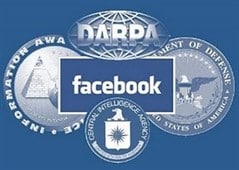The US government and in particular the State Department have come under some scrutiny — and even been subject to some ridicule — over increasing reliance on “social media” as evidence to back up US foreign policy positions or conclusions about international events. Many find it shocking that a government which spends some $100 billion on a vast and worldwide intelligence network would really pore over YouTube and Twitter to present user-uploaded items as if finished intelligence products.
Most recently, State Department spokeswoman Marie Harf yesterday presented the US government’s case for Russian involvement in the apparent downing of Malaysian Airlines flight MH-17 over Ukraine based on “social media” and “common sense.” She also cited unspecific “other information” that the government would not share, but the crux of the case for such a significant conclusion with almost incalculable implications was made by referencing “Tweets” and other, often anonymous, personal communications.
It sounds flimsy to most people for the US government to rely on such sources, but there may be a very logical explanation.
According to a report in the Guardian newspaper earlier this month, the Pentagon’s Defense Advanced Research Projects Agency (DARPA) has spent multiple millions of dollars to study how people communicate on social media and, more importantly, how to manipulate social media and its users.
According to the Guardian:
Research funded directly or indirectly by the US Department of Defense’s military research department, known as Darpa, has involved users of some of the internet’s largest destinations, including Facebook, Twitter, Pinterest and Kickstarter, for studies of social connections and how messages spread. …
Several of the DoD-funded studies went further than merely monitoring what users were communicating on their own, instead messaging unwitting participants in order to track and study how they responded.
A scandal broke out among Facebook users recently when it became known that Facebook conducted a secret experiment to manipulate the emotions of unwitting users. According to the Guardian article, Facebook also teamed up with the Pentagon’s DARPA to conduct other social media research projects.
Information leaked by former NSA employee Edward Snowden reveal that the US and British governments have been heavily involved in using Twitter, Facebook, and other social media tools for propaganda and deception purposes.
The Guardian continues:
Documents prepared by NSA and Britain’s GCHQ (and previously published by the Intercept as well as NBC News) revealed aspects of some of these programs. They included a unit engaged in “discrediting” the agency’s enemies with false information spread online.
So there might be a very good explanation for the US government’s increasing reliance on “unofficial” and often anonymous and untraceable posts on social media outlets. It is not that they are a better substitute for old-fashioned collection and analysis by trained intelligence professionals. It may well be that these intelligence professionals often come to the “wrong” conclusions and therefore must be side-stepped.
As we discovered in the infamous Downing Street Memo, which was written on this day fourteen years ago, the head of British Intelligence noted that:
Bush wanted to remove Saddam, through military action, justified by the conjunction of terrorism and WMD. But the intelligence and facts were being fixed around the policy.
In this context — and particularly as there was no significant fallout on either side of the Atlantic for such egregious and criminal deception on the part of the US and UK governments — it may well be that social media is the newest and most effective way of fixing the intelligence and facts around the policy.

